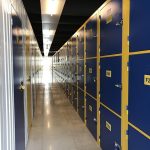Commercial solar energy solutions offer businesses a powerful way to cut energy costs while boosting sustainability. From tailored solar panel systems to battery storage, these technologies enhance energy independence and protect against rising grid prices. Real-world examples show how UK companies reduce emissions and operational expenses by adopting clean, renewable power—making commercial solar a strategic investment for efficiency and long-term savings.
Key Commercial Solar Solutions, Cost Savings, and Sustainability Benefits for Businesses
For UK companies exploring energy independence and lower overheads, Commercial Solar Energy enables tailored solar panel systems that efficiently serve diverse settings offices, manufacturing plants, warehouses, and even large-scale agricultural sites. Solar solutions are constructed with industry-leading panels monocrystalline or polycrystalline suitable for varying roof styles and available ground space, allowing businesses to select systems that balance energy generation with facility needs. Options such as rooftop arrays, solar carports, and ground-mounted installations are widely adopted, spanning sectors from logistics to hospitality.
Also to see : Unlock the potential of your business with solar energy options
Saving on electricity begins immediately, as solar-generated power from commercial systems is typically supplied at just 4–5p per kWh, far below average grid rates. Many businesses recover their investment in 5–8 years, after which significant reductions in annual utility costs become routine, contributing to predictable budgeting and insulating firms from volatile market spikes.
Powering business with solar directly supports environmental targets. Companies can cut their carbon output by tens of thousands of kilograms per year, actively helping the UK transition toward net-zero. Real-world adopters such as councils and retailers demonstrate that solar installations materially improve corporate sustainability profiles.
In the same genre : What Sustainable Practices Can UK Shipping Companies Adopt to Reduce Carbon Emissions?
Commercial Solar System Options, Installation, and Financial Incentives
Tailored Solutions: Rooftop, Ground-Mounted, Solar Carports, and Sector-Specific Systems
Commercial solar systems come in diverse forms to meet business requirements. Common solutions include rooftop arrays for offices and warehouses, ground-mounted systems for sites with available land, and solar carports that transform parking areas into productive assets. Sector-specific installations are designed for industries such as manufacturing, agriculture, and logistics, maximizing both space and solar exposure to enhance power output.
Installation Process: Site Assessment, Design, Timelines, and Integration
Professional installation starts with a thorough site assessment—evaluating available space, orientation, and shading. Specialists then design a custom system, selecting durable, high-efficiency panels. Installation timelines vary based on system size and complexity but often range from several weeks to a few months. To ensure minimal business disruption, many providers prioritize seamless grid integration and structural compatibility with the current infrastructure.
Financial Landscape: Cost, ROI, Incentives, and Funding
A cost breakdown highlights that commercial solar panel systems typically deliver a payback period of 5 to 8 years due to lower electricity generation costs (4-5p/kWh vs. 12–25p/kWh for grid energy). Multiple financial incentives tax credits, government grants, and rebates help offset upfront investment. Flexible financing options such as Power Purchase Agreements (PPAs) and asset finance, paired with comprehensive service contracts, ensure straightforward access and ongoing performance. Businesses gain energy independence, cost stability, and support for net zero targets.
Performance, Maintenance, and Real-World Commercial Solar Outcomes
Operational efficiency: monitoring systems, battery storage integration for energy independence, and performance benchmarks
Commercial solar systems frequently reach peak operational efficiency by combining advanced monitoring platforms with on-site battery storage. Real-time monitoring solutions track production and highlight deviations, letting businesses act quickly to maintain output. Integrating battery storage strengthens energy independence by supplying electricity even during outages and peak tariff periods, stabilizing expenses and maximizing return on investment. Performance benchmarks reveal best-in-class commercial solar panels produce electricity at as little as 4–5p per kWh, dramatically undercutting traditional grid rates.
Long-term maintenance requirements, service contracts, warranties, and supplier support
Efficient commercial solar installations have minimal maintenance needs, yet regular checks and professional cleaning keep output optimal. Leading suppliers such as AlphaGen Energy provide ongoing service contracts and extended warranties, supporting clients long after installation. Responsive operational support including expert 24/7 technical assistance minimizes downtime and maximizes savings over a typical solar system’s 25 to 30-year lifespan.
Notable case studies and client testimonials: energy savings, increased sustainability, and successful project delivery
Real-world case studies show organizations reporting significant energy cost reductions and achievements in sustainability. UK companies like Bristol City Council and well-known commercial brands have leveraged bespoke solar systems to cut both expenses and carbon emissions, strengthening their reputations and paving the way to net-zero objectives.











